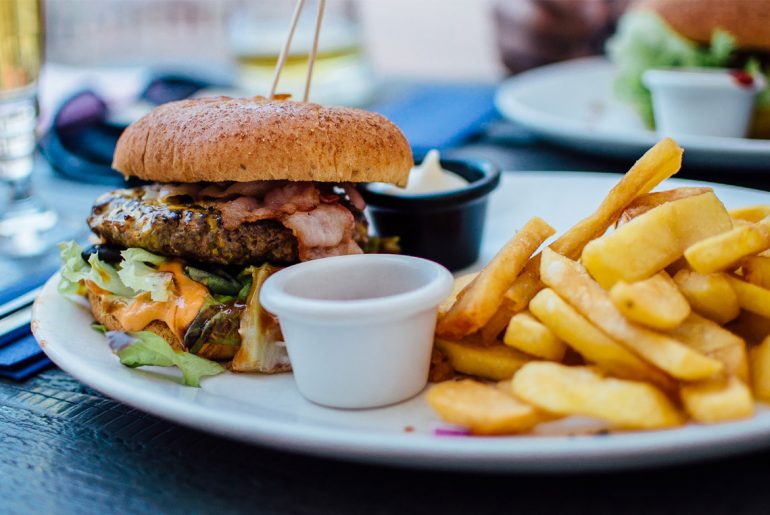We all have bad days when our sour mood gets the best of us and we end up binging on bags of potato chips and Netflix in an attempt to cope. But there’s a difference between reaching for comfort food now and then and a full-blown food addiction.
But if you’re not sure where your habits lie, you’re not alone.
Food addicts aren’t entirely different from folks who overeat. The same ingredients that cause intense cravings can also cause addiction.
“The food industry makes food intentionally addictive,” Vera Tarman, MD, MSc, FCFP and author of Food Junkies: The Truth About Food Addiction, told Dr. Oz, The Good Life.
Some people have genetics that make them even more susceptible to developing addiction.
“There’s a subpopulation who gets that hook like everyone else, but then they’re vulnerable because of a previous addiction or genetics,” Dr. Tarman said. “It’s like an alcoholic who can’t put down a drink; it’s similar with food. Once they get going, they can’t stop.”
While not a substitute for a true medical diagnosis, Tarman uses a series of 20 questions to help people gauge the likelihood they have fallen into addictive eating behavior.
- Do you crave and obsess over food, even when you’re not hungry?
- Have you every wanted to stop eating but you couldn’t?
- Do you eat when you’re not hungry?
- Do you ever eat in secret different than how you’d eat in public?
- Have you every stolen other people’s food?
- Do you throw away food only to come back later and get it?
- Gave you ever hidden food to make sure you’ll have enough for yourself to eat after your guess leave?
- Do you eat unrealistically large quantities of food at one time?
- Have you ever felt guilty about how you can’t control your food?
- Do you crave food or obsess about food so it becomes the focus or reward to the point where you might have something else planned, but food becomes more important?
For the complete list of questions, visit Tarman’s website.
How to help yourself
If you think your eating habits are starting to boarder on dangerous, it might be time to seek help.
“For some people, food acts like a drug. You get a buzz, and you can’t stop,” said Tarman. “Those people have to figure out what their trigger foods are, and like with any drug, they have to stop eating that food.”
Judith Brisman, MD, founding director of the Eating Disorder Resource Center in Manhattan and author of Surviving and Eating Disorder: Strategies for Family and Friends, encourages people to explore, experiment and see what works for them. “See what it’s like avoiding certain foods. Does it help? Does it make you want that food more?”
Brisbane is a “big believer in integrating a structure around eating” to help food addicts, so they can develop a rhythmic pattern of meals and snacks, rather than giving in to craving when they hit.
Tarman recommends a slightly stricter approach. It’s what she called the “food addict diet.” That’s eating mostly vegetables and protein — “basically no processed food.” This eliminates sugar, chips, bread, bagel and popcorn from the diet and helps the body reset and eliminate cravings for those salty, processed snacks.
Tarzan admits the first few weeks create a type of withdrawal, just like quitting smoking or drinking, but says that after three or four weeks a person will be be through it and won’t crave those foods any longer.
It sounds rigid, but if your go-to move for a meal is crunching away on a bag of chips, it might be time to seriously consider hitting the reset button on meal time.
(h/t Dr. Oz The Good Life)




